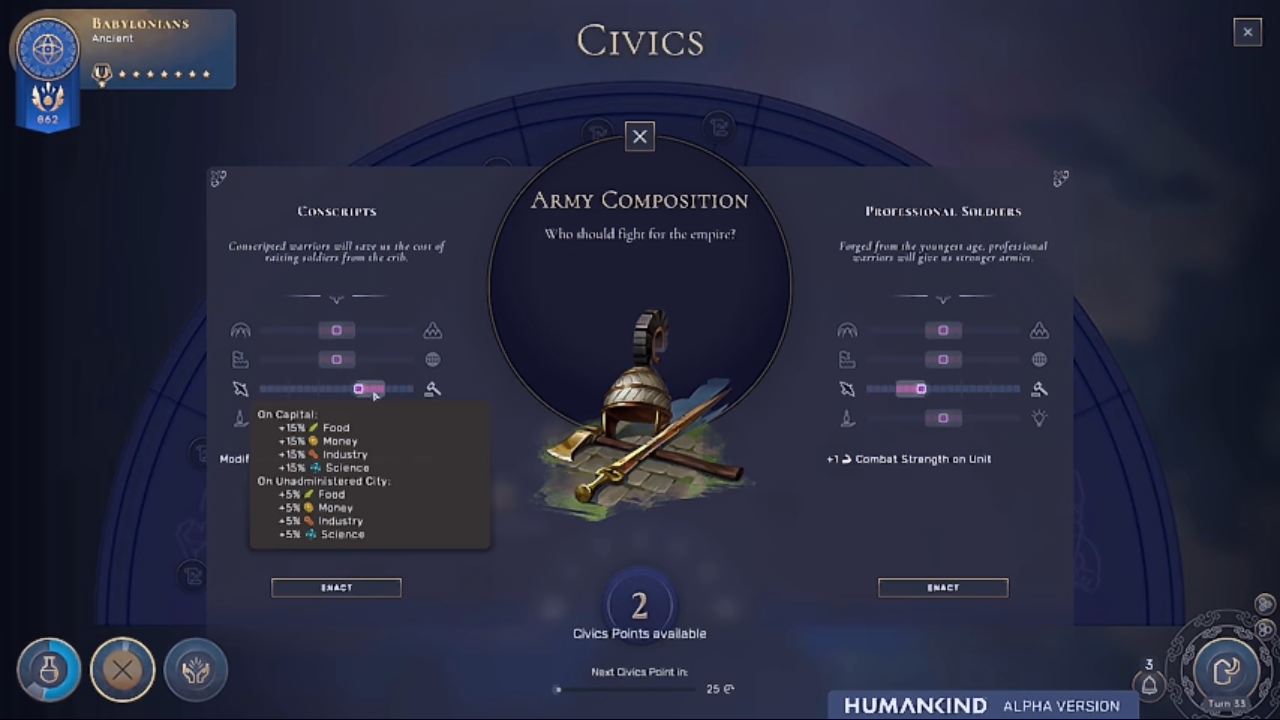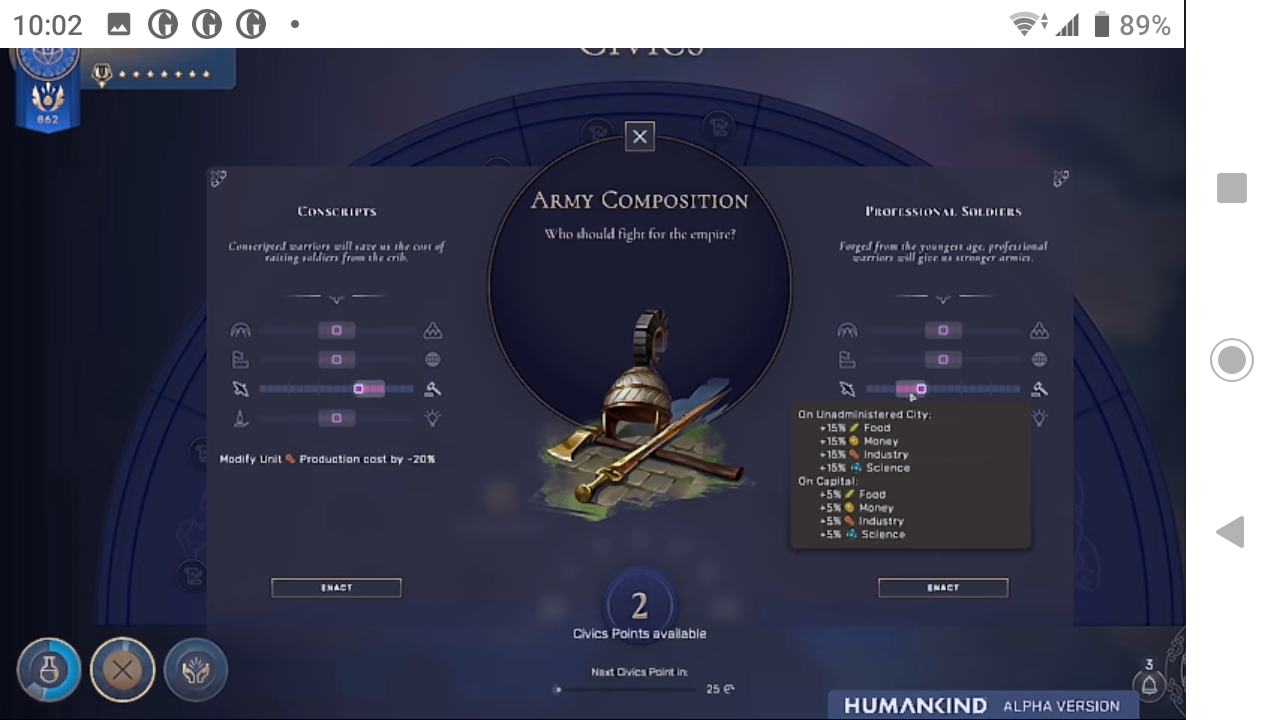Hey everybody,
We have already talked about how you can shape your civilization by picking different cultures before, so today we want to tell you about another way you shape your civilization and their history in Humankind: Civics and Ideologies! Check out the video below or read the blog for more information.
Civics represent many different aspects of your civilization. They are a legal and structural reflection of the moral choices, values, and beliefs of your society. How is your government structured? Who owns the land? What are the religious rites of your society like?
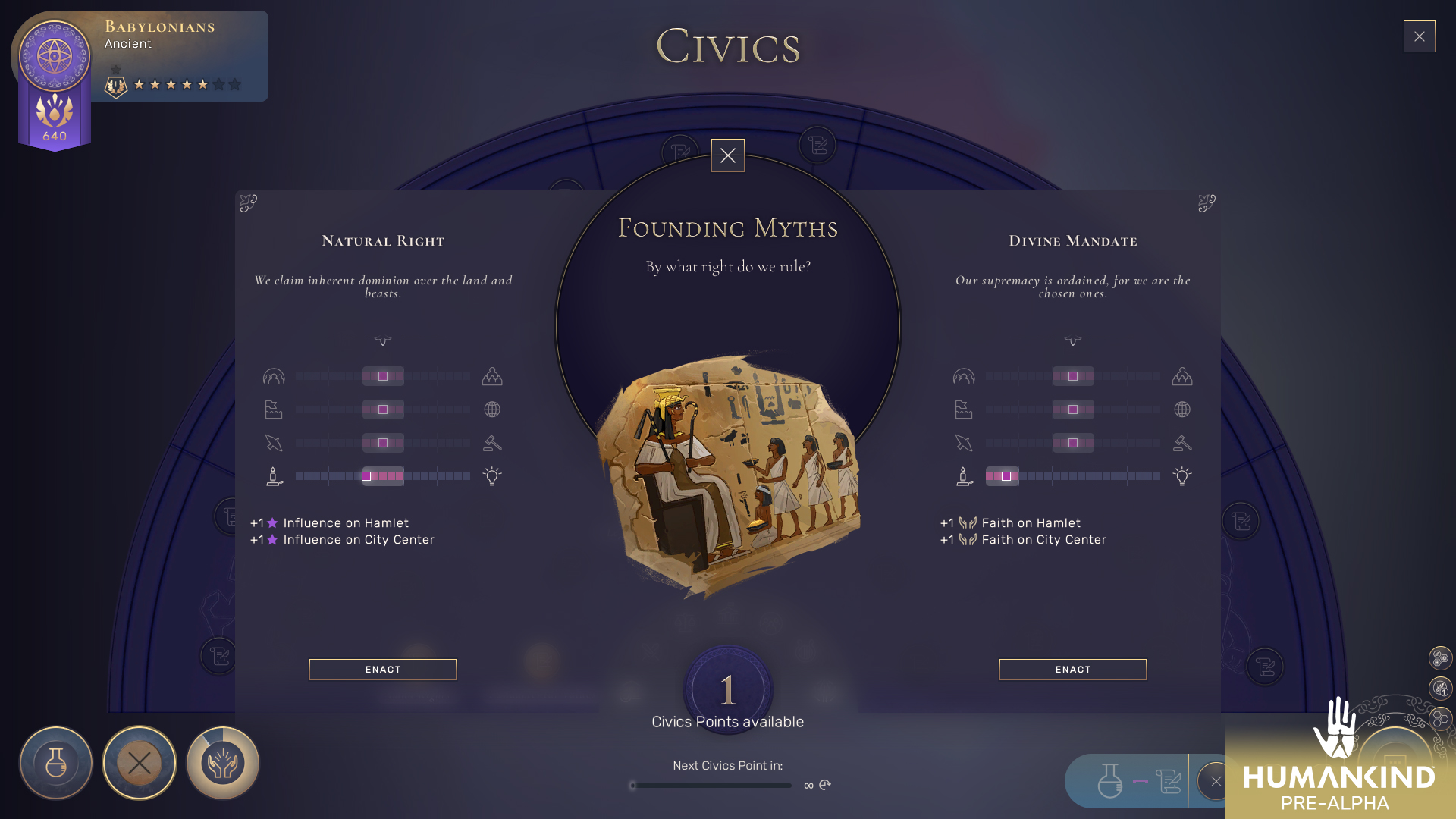
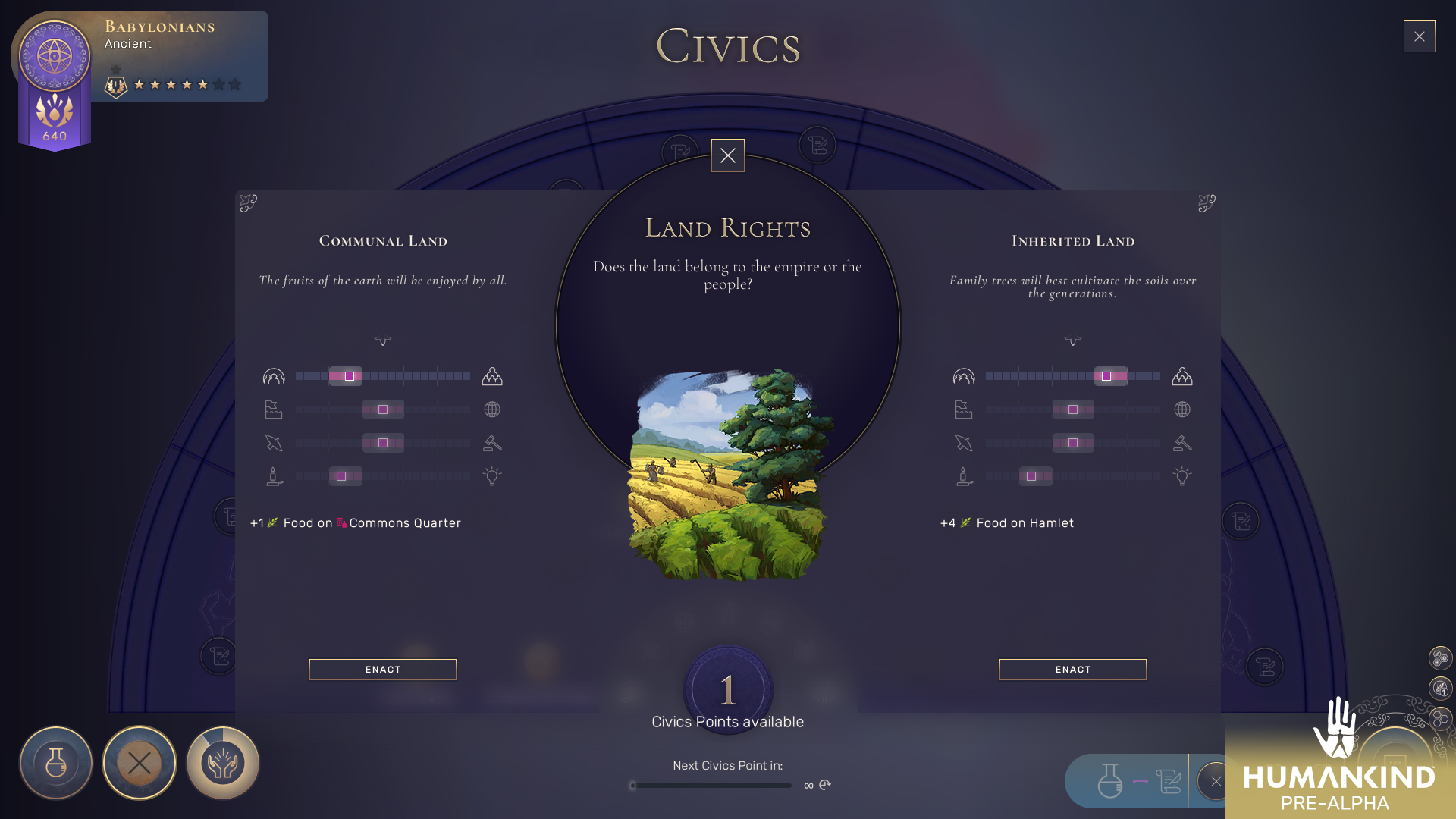
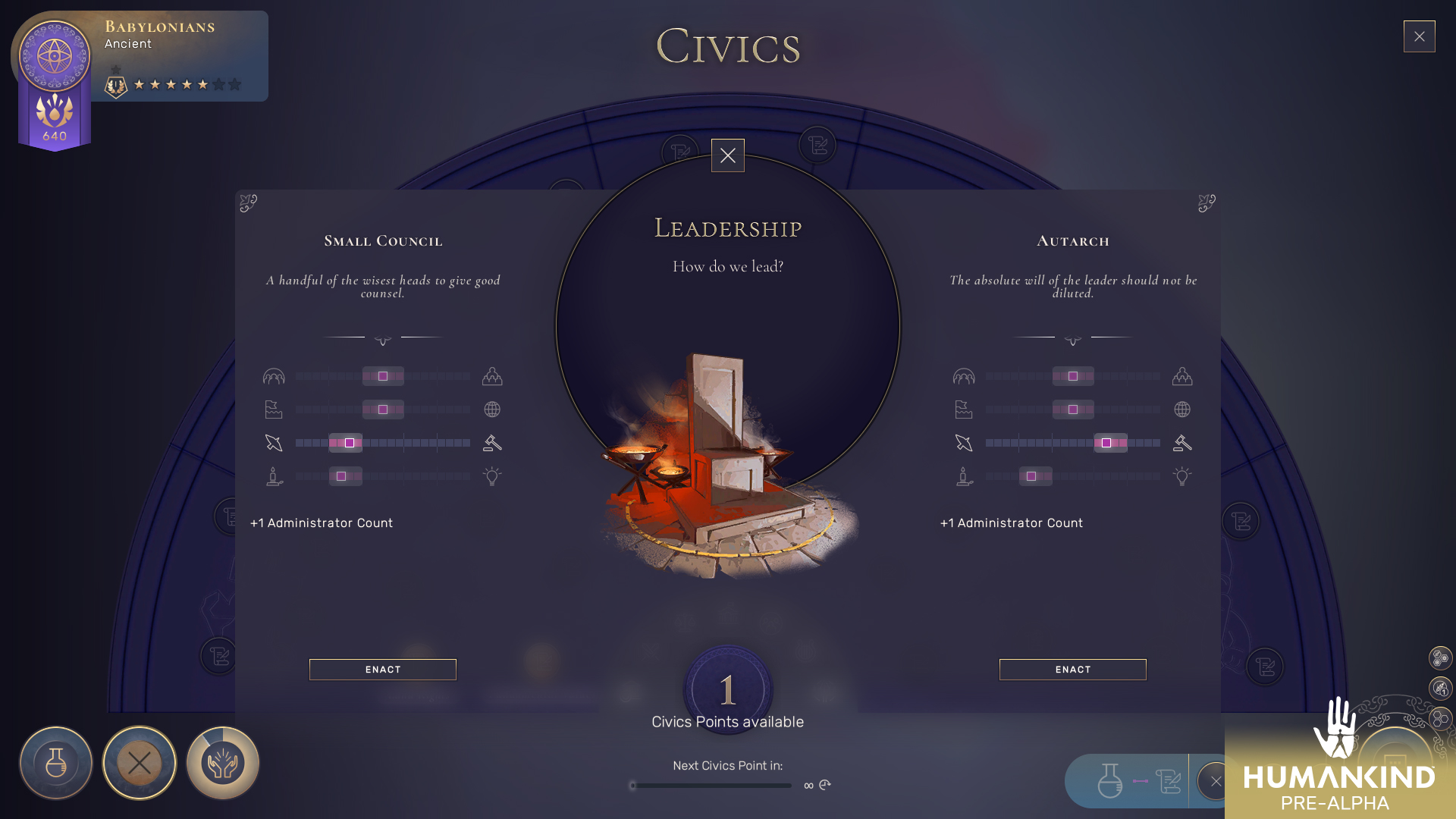
These Civics are unlocked by specific gameplay situations, so that the choices you can take always relate to the achievements and experience of your people in some way. However, to enact any Civics, you will also need Civics Points, which are gained slowly over time if your empire is stable. For each Civic, you can enact one of two options that provide immediate gameplay benefits, but also shift your ideologies. Once enacted, Civics are difficult to change except in specific circumstances or events. For example, if the culture of your neighbors influences your people, they may ask you to adopt change your Civics to more closely match your neighbors.
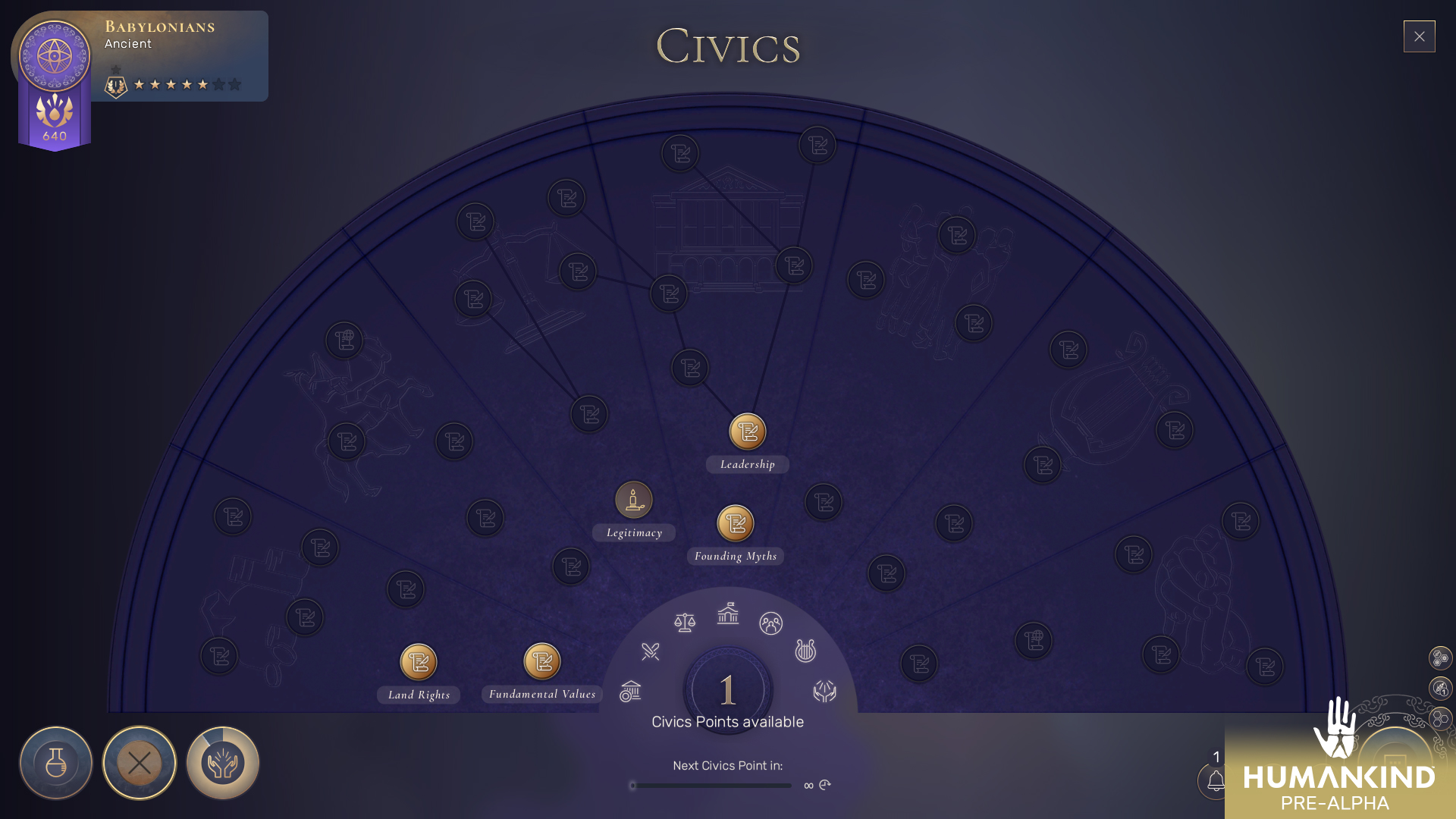
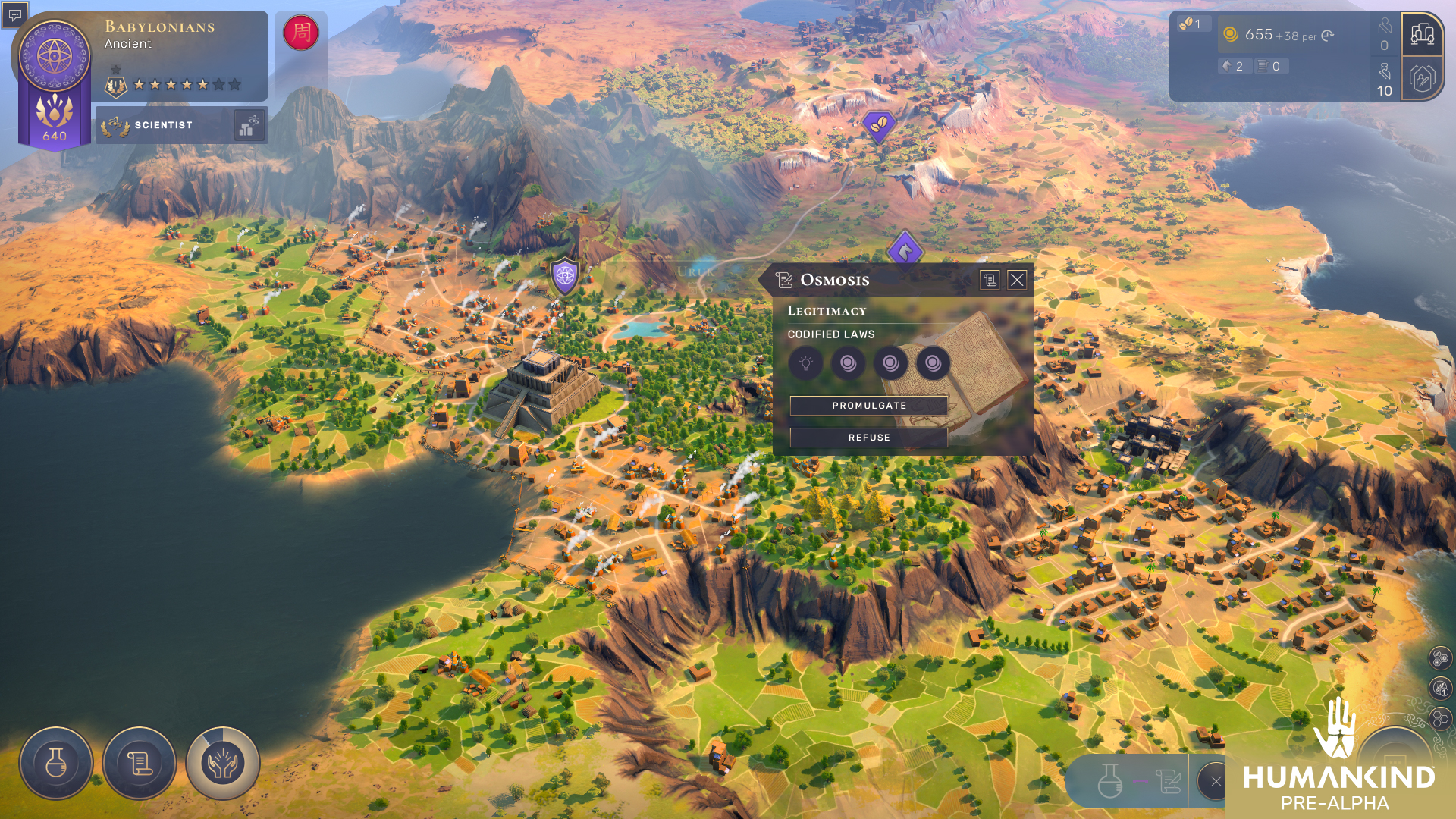
Ideologies represent the values and shape of your civilization in a different way, a result of many individual decisions taken over the course of the game.
Each time you select a Civics option or make a decision on a narrative event, you move your society along one of the four ideological axes. These axes are Economy, Geopolitics, Government, and Society. Each axis is divided into five different steps that provide different gameplay bonuses, with a balanced bonus at the center and more specialist bonuses at the extremes of the axes. In addition to these bonuses, Ideologies will affect diplomacy, and how easy or difficult it is for you to wage a protracted war against a neighbor. It is harder to keep your people motivated to fight a neighbor they share values with.
In addition to Civics, your Ideologies are influenced by Narrative Events.
These events are inspired by historical events, and are triggered by specific gameplay situations. Thanks to these specific conditions, you may discover new events even after playing many games of Humankind, and experience new combinations of events each game. On top of their immediate gameplay benefits, costs, or consequences, many of these events can lead to further events later in the game. Furthermore, you will always have to weigh the immediate results against the long-term shift of the Ideologies of your civilization.
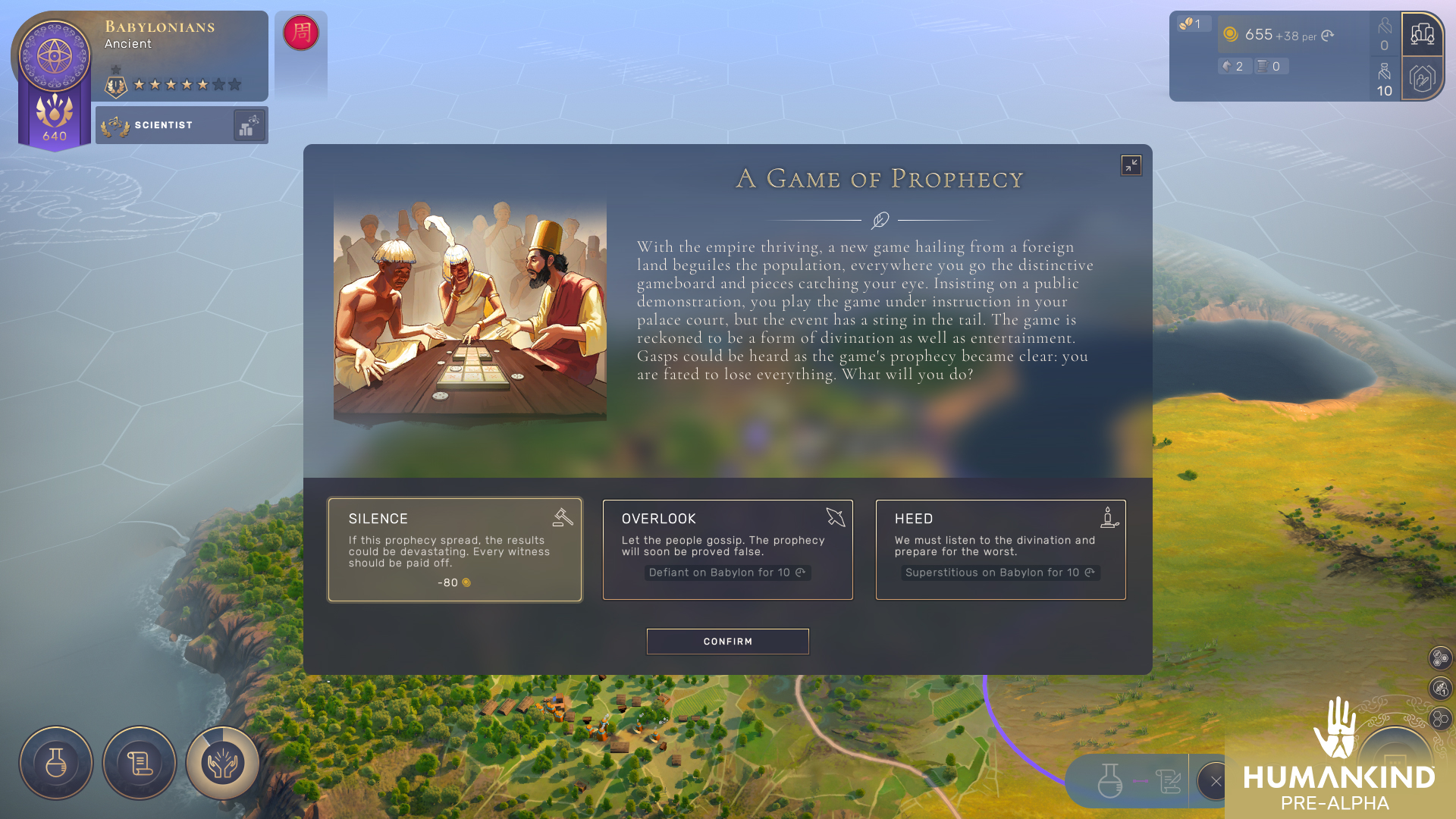
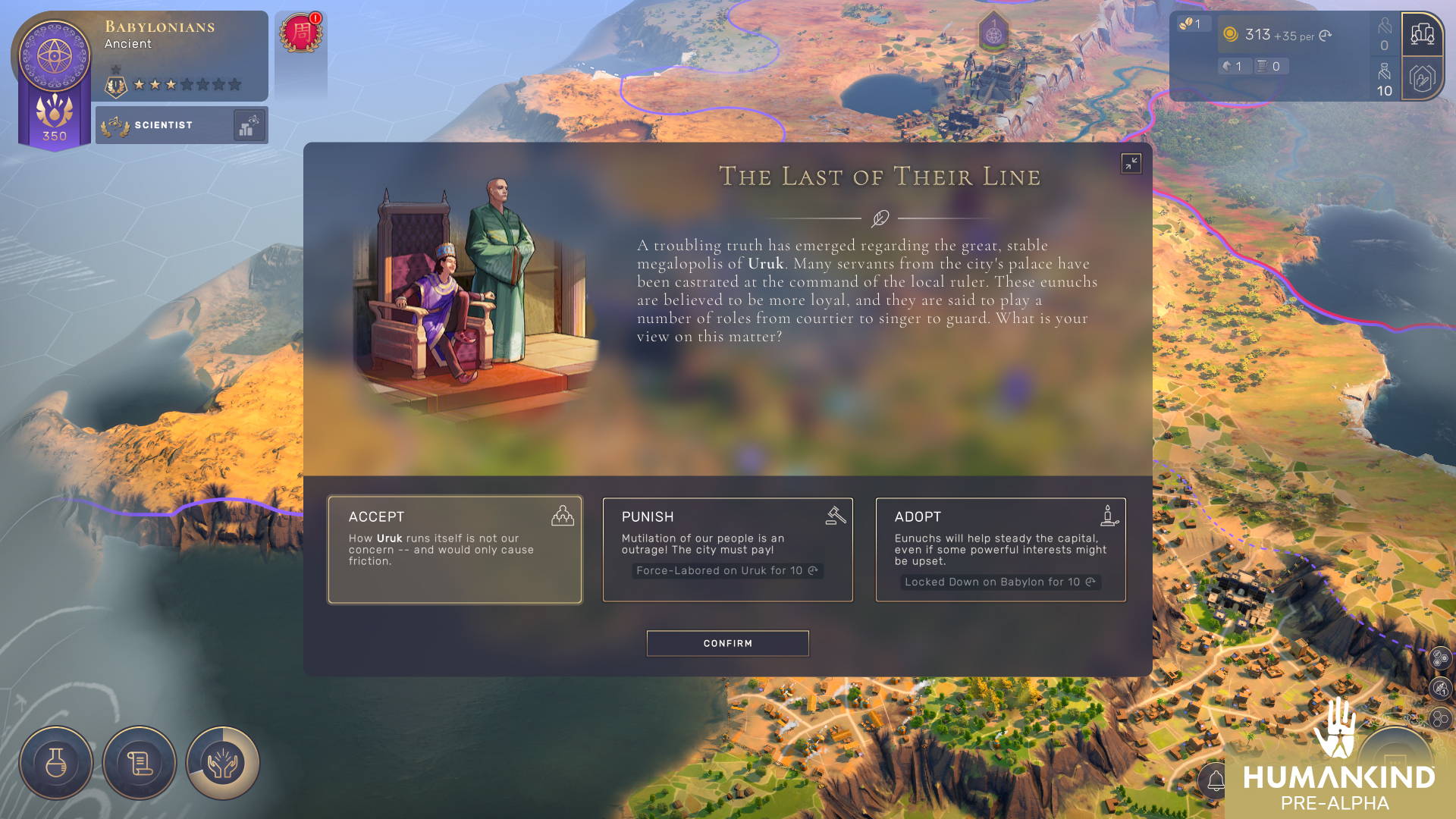
Since Ideologies are shaped by your Civics and choices during events, they will dynamically shift over time. This system allows you to shape your civilization, and experience the history and journey of your people.
Hope you enjoyed this brief look at the Civics and Ideologies systems in Humankind!
Let us know what you think below.


















.png)




















































